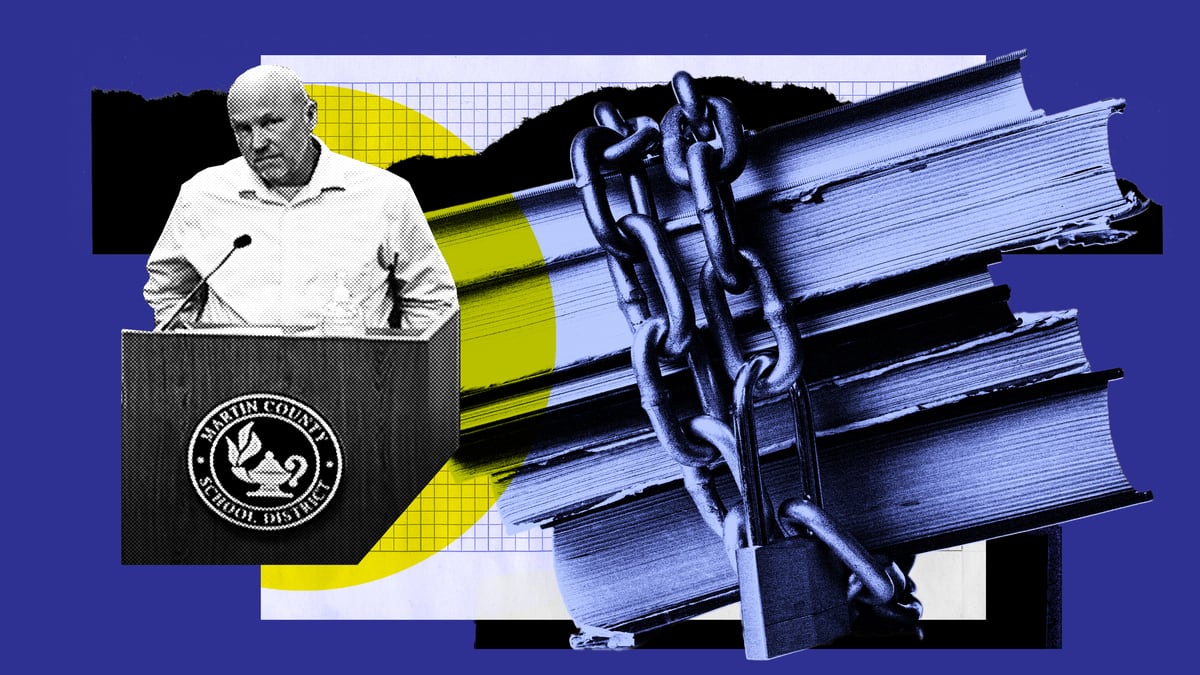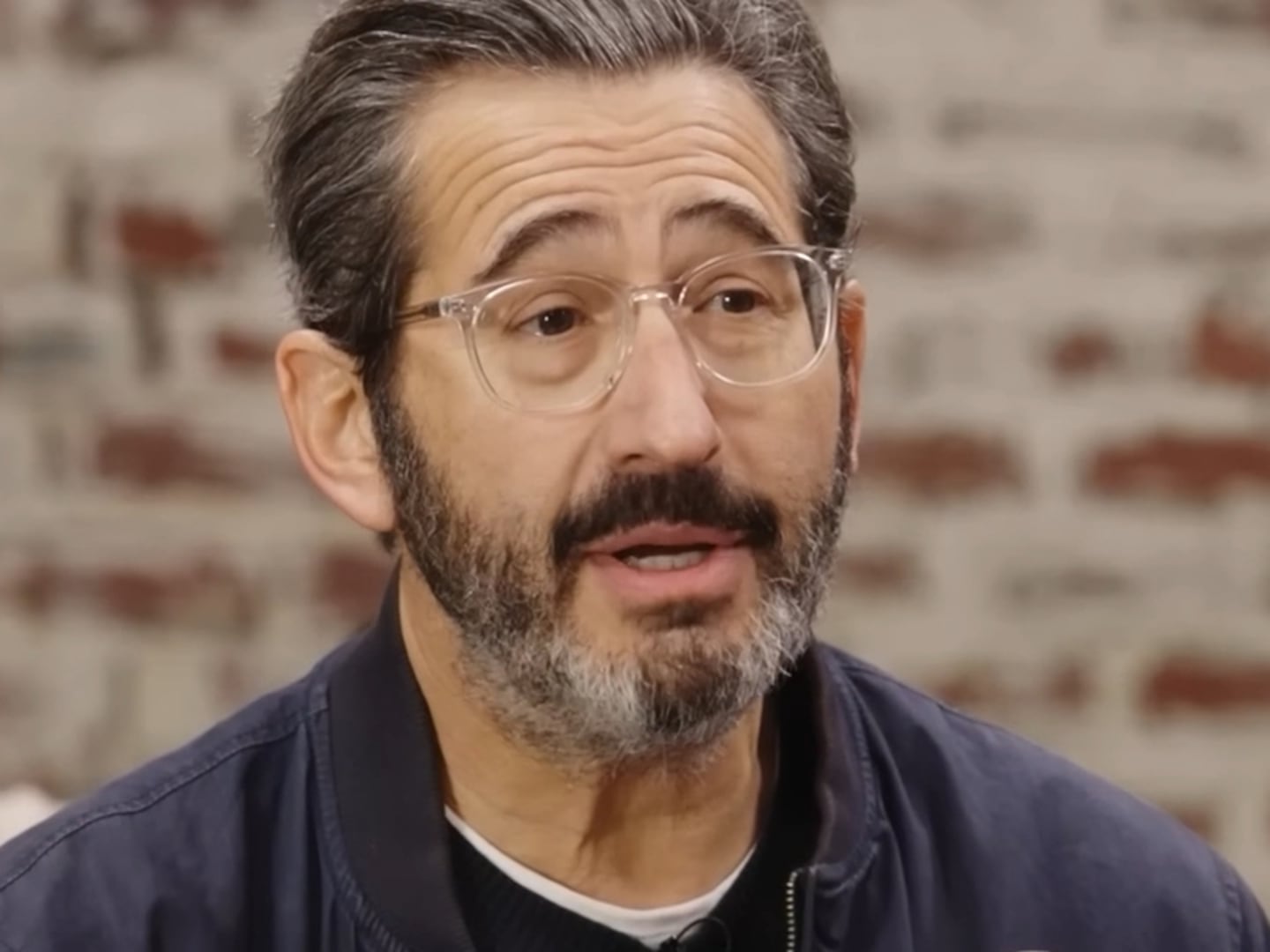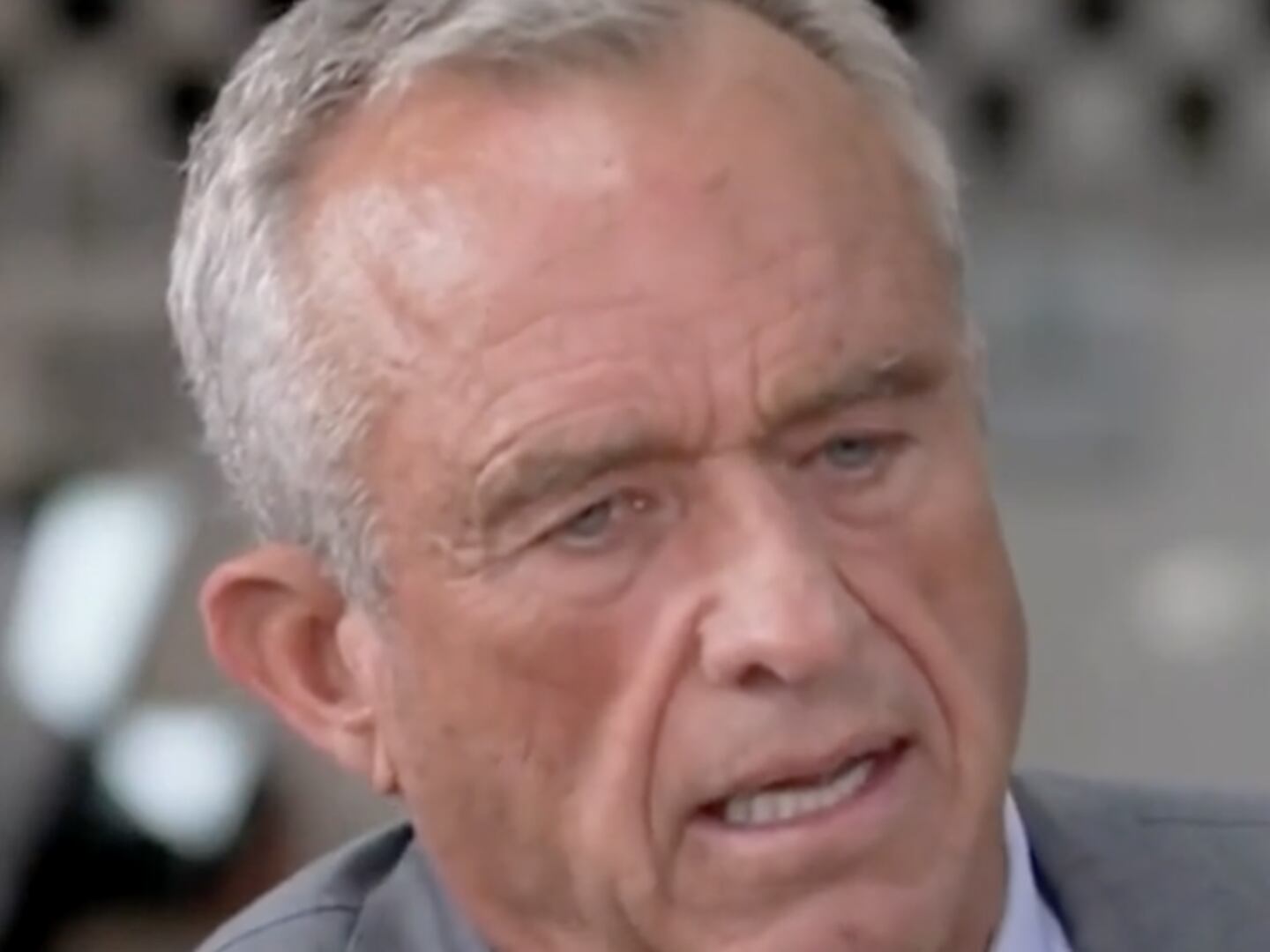Politics
Photo Illustration by Luis G. Rendon/YouTube/Getty
Retired Navy Officer Takes on Florida’s Book-Ban ‘Fascism’
‘THAT’S NOT AMERICA’
“I didn’t sacrifice 21 years of my life to stand idly by while religious fanatics and other fanatics try to impose fascism on my country.”

Trending Now




